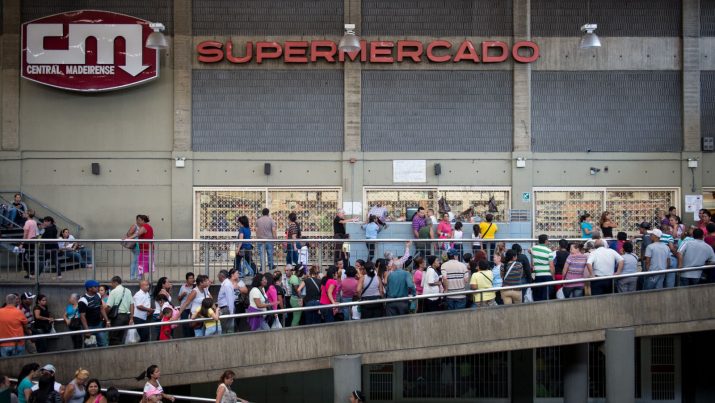
40% of retail stores in Venezuela go bankrupt as government mandates massive minimum wage hike that no employer can afford
Tuesday, September 18, 2018 by Tracey Watson
http://www.risk.news/2018-09-18-retail-stores-in-venezuela-go-bankrupt-massive-minimum-wage-hike.html

Just when it seems like things cannot possibly get any worse in Venezuela, they somehow do. A combination of rampant corruption, failed socialist policies, and the 2014 fall in the oil price have already left this formerly wealthy country reeling, pushing it right over the edge financially.
At the end of July, Venezuela’s annual inflation rate hit 83,000 percent, and it is predicted to hit a mind-blowing 1 million percent by the end of the year. On average, prices double every 26 days, and since the value of the Venezuelan Bolivar has basically collapsed, imported goods – when they’re available – are beyond the reach of most Venezuelans. This is a massive problem in a country that historically relied on oil revenues and produced virtually nothing else, depending on imported goods from other countries.
And things just got a lot worse for the already shell-shocked Venezuelans. The corrupt Maduro government just implemented a 3,000 percent mandatory wage increase, which has resulted in the closure of 40 percent of the businesses that had somehow managed to remain solvent despite all the other problems in the country. (Related: Doctors, teachers, electricians all fleeing Venezuela, as failed socialist nation enters last chapter of epic collapse.)
A man-made disaster
So, what went wrong in Venezuela? The U.K.’s Independent explains:
Venezuela’s government is to blame. Sure, $50-a-barrel oil hasn’t helped, but it hasn’t hurt so much that a “Mad Max”-style dystopia was inevitable. … Venezuela is a man-made disaster. It’s a gangster state that doesn’t know how to do anything other than sell drugs and steal money for itself. Indeed, two of President Nicolás Maduro’s nephews were arrested on charges of conspiring to bring 800 kilos of cocaine into the United States, the president’s right-hand man is suspected of running a drug ring himself, and public money has a habit of disappearing into what could only be private pockets. Two ex-officials estimate that as much as $300 billion has been misappropriated the past decade.
Venezuela is ranked as the ninth most corrupt country in the world. The countries that make it higher up on the list are all war-torn disasters.
And the hits keep coming …
And the government keeps making a bad situation worse. In addition to the insane 3,000 percent wage increase, the government has also placed mandatory caps on the prices of goods sold in stores, making it impossible for store owners to increase prices to cover the additional wage costs. Businesses are subjected to spot inspections, and the owners of any stores found selling goods at higher prices face imprisonment without any right of appeal or other recourse.
“It is a perfect storm,” María Carolina Uzcátegui, president of the National Council of Commerce and Services, told the Miami Herald. “These decisions are leading many business people to say, ‘No, I can’t do it any more [sic].’”
While some businesses have managed to restructure costs and negotiate wages with employees, many others have simply shut their doors.
“The government sector has the monopoly on imports, the currency market is dysfunctional and there’s hyperinflation,” economist Orlando Ochoa told the Miami Herald. “So, if salaries are increased by decree, and the commercial and industrial sectors cannot sell their products because of these problems, and on top of that because of electricity blackouts, infrastructure problems and the loss of qualified personnel, which is leaving the country, then it’s easy to understand that many may prefer to close.”
The situation in Venezuela is both sad and shocking. And it serves as a powerful warning to people like Jim Carey who say that America should just “say yes to socialism.” (Related: Venezuelans continue to starve, as government refuses to blame socialism.)
Sources for this article include:
Tagged Under: Tags: Collapse, corrupt, economic collapse, elections, failed state, hyperinflation, Inflation, minimum wage, misappropriated funds, money supply, socialism, Venezuela, voters, wage increase





